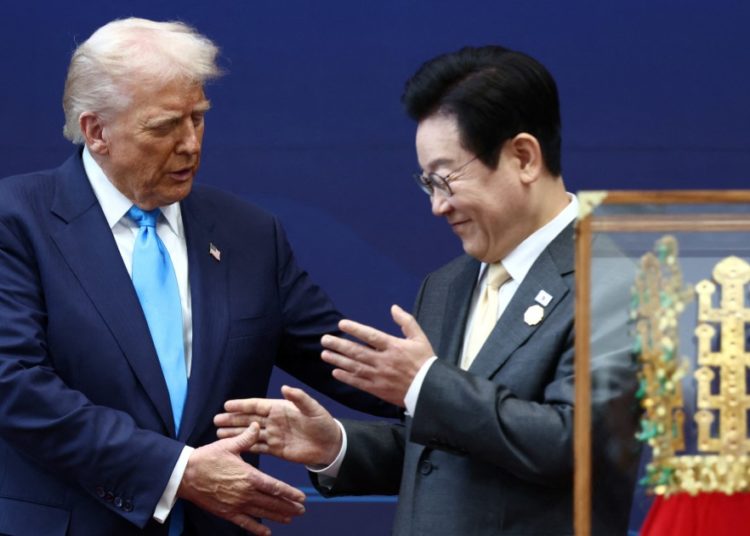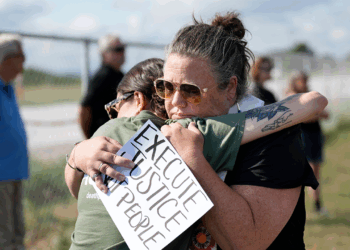I’m in a long-distance co-parenting arrangement after a difficult separation. Because of legal barriers, I’ve had limited physical access to my children for some time. In response, I’ve built a structured, intentional form of remote parenting — weekly video calls, shared activities and in-person visits — to remain a regular, loving presence in their lives.
Now I’m considering moving to the United States to live with a close family member who has offered emotional support and stability. The move would allow me to continue a long-overdue process of healing after years of trauma and to rebuild my life in a more grounded environment. I already parent from a distance, but moving abroad would make that distance more definitive — I would go from seeing my children once every two weeks to only once a quarter. I worry about how that change might affect our bond and my responsibilities as a parent.
Is it ethically defensible to pursue personal renewal and family support abroad when it means continuing to parent remotely? How should I weigh my children’s emotional needs against my own need for healing, belonging and growth? — Name Withheld
From the Ethicist:
You don’t say what limits your access to your children, or anything about their ages, their needs or the other parent. So let me confine myself to a few general observations.
First, there’s the practical question of whether moving would affect your visitation privileges. You should consult a family lawyer about this. I’ll assume it wouldn’t, but it’s important to be sure before you act.
Beyond that, being a parent doesn’t mean subordinating your own interests entirely. You’re entitled to care for yourself, and you can’t be the parent your children deserve if you’re unwell or depleted. Even if you saw your duty as entirely to them, that duty would still include preserving your own mental health.
Given that you already parent from a distance, this move may not fundamentally change your relationship. Technology allows for real intimacy and presence, even across continents. Seeing your children less often in person is a loss, yes, but it could be offset if you feel more grounded and supported. A child benefits from a parent who is emotionally steady, even from afar. (As someone who spent part of his childhood thousands of miles from home — in the age of handwritten letters — I can attest that loving relationships can surmount distance.) Your parenting, not your postal code, may matter most.
A Bonus Question
A stressful family dynamic is weighing on me. My late parents named the younger of my two sisters as executor of their estate. As executor, my sister has not acted in the best interests of all three beneficiaries. She has paid herself exorbitantly, billed the estate for questionable “work” and even compensated herself for attending our father’s funeral and visiting our mother in her dementia facility. She gave herself first pick from our parents’ art, silver and jewelry. (This was technically legal under the will, since she balanced the appraised values.) She has refused to provide requested information, including what she has paid herself.
She also controls a separate family legal entity that owned a vacation home. She sold the house 16 months ago but has withheld the proceeds, insisting my other sister and I sign a release indemnifying her from any responsibility before any distribution. We have hired a lawyer.
Each of us has grown children, and the cousins have always been close. But since all this began, there have been no family holidays or gatherings. My parents were good people but poor communicators — conflict-averse and secretive. Reacting to that, I raised my children with openness and honesty. I’ve told them, briefly, what has happened. I made clear that their relationships with their aunt and uncle are their own choice, and that I would attend any gathering they host, even if those two are present.
Is there any credible argument that I should not have been honest with my children about their aunt and uncle’s actions? — Name Withheld
From the Ethicist:
Your letter serves as a cautionary reminder about the choice of executor. Grief can magnify old resentments; even fair decisions can look like favoritism, and questionable ones can tear families apart. So I’m sorry you’ve found yourself in such a painful situation. Of course, I only have your account; if I spoke to your sister, I might hear a very different one, and it’s worth pausing to consider how things might look from her side. A better understanding of her perspective might help you decide how to respond.
That doesn’t mean you were wrong to be candid with your children about what has happened. Honesty about family dynamics allows people to make their own judgments and act in accordance with their values. Your children have their own relationships with their aunt, uncle and cousins, and as you recognize, they deserve the chance to navigate those ties without being forced to take sides. You can’t undo the past or control your sister’s choices, but you did well to try to show the integrity and openness you wish had governed your parents’ estate. This, in families, is a kind of inheritance, too.
Readers Respond
The previous question was from a reader who felt conflicted over whether to reveal her friend’s affair with a married man. She wrote:
“My best friend has been having an affair with a married man. Another close friend of mine considers the man’s wife like a sister. My best friend confided in me more than a year ago; I was upset, but I stayed quiet, partly because it didn’t feel like my place to say something and partly because I hoped it would end. It hasn’t, and now I resent carrying the secret. If I tell that other friend, I risk my relationship with my best friend and may just shift the burden onto the other friend, who would then have to decide whether to reveal it and hurt the betrayed wife. But if I stay silent, I remain complicit in hiding something that could affect the wife’s choices about her marriage. Do I keep protecting the secret, or speak up?” — Name Withheld
In his response, the Ethicist noted:
Most of us know far less about what goes on inside other people’s marriages than we may think. … That’s why it’s often better, in these circumstances, to shift from thinking about outcomes to thinking about obligations. The question isn’t “What will make things better?” but “What do I owe, and to whom?” Here, your primary bond is with your best friend. … You can think that the wife has a right to know what’s going on without thinking that you have a duty to tell her. That duty lies with her husband, the person who broke his vows. … What you do owe is candor with your best friend. Encourage her to end the affair, or to confront its consequences openly. If you decide, in the end, that you can’t keep her confidence, let her know before you act. If you decide that silence is the lesser harm, then keep the secret fully. Confiding in your other friend wouldn’t ease your burden; it would just spread the damage.
(Reread the full question and answer here.)
⬥
I agree with the ethics of not revealing the affair. However, the relationship with the friend is the issue. Does the letter writer really want to be friends with someone whose moral compass is so different? I personally would just back away and look for friends who share the same values. — Virginia
⬥
I was in a similar situation, but I was the wife who was being cheated on. A friend of the woman my husband was cheating on me with waited a long time, hoping it would end. She tried to confront her friend about it, to no avail. And she finally decided I needed to know I was being lied to. It blew up my marriage, but I can never, ever say how grateful I am to the woman who didn’t let me go on in ignorance of what my husband was doing. I deserved the truth and was never going to get it from him. As women and as humans, we owe it to one another. — Tayria
⬥
The Ethicist says that both marriage and friendship are moral institutions. Yet this friendship has been deeply violated by the woman who disclosed the infidelity but insists it must be kept secret. She wanted to unburden herself without suffering any consequences, but she has only passed her burden onto her friend. If I were the letter writer, I’d be furious. — Nelle
⬥
A duty to protect someone’s confidence, even a best friend’s, becomes void when protecting that confidence comes at the expense of likely hurting someone else. That the writer knows the adulterer’s wife only through another friend is irrelevant; what matters is not her personal ties to the wife but whether the wife is likely to suffer more because of the writer’s silence. The wife is the one whose autonomy and dignity are most at stake. Maybe she already knows; maybe she wouldn’t care. Either way, she deserves to be told. Friendship is a bond of mutual respect, not complicity. — Casey
⬥
As the Ethicist said, life is complicated. Personally, the older I get, the less I feel the need to make judgments or step into other people’s lives. The letter writer’s loyalty is owed to the friend. Informing the wife is unlikely to make the situation any better for anyone. Your friend would feel dismayed and lost: She trusted you, and you failed her. How different is that from the husband being unfaithful? — Janet
Kwame Anthony Appiah is The New York Times Magazine’s Ethicist columnist and teaches philosophy at N.Y.U. To submit a query, send an email to [email protected].
The post I Co-Parent My Kids. Would It Be Wrong to Move Abroad? appeared first on New York Times.




